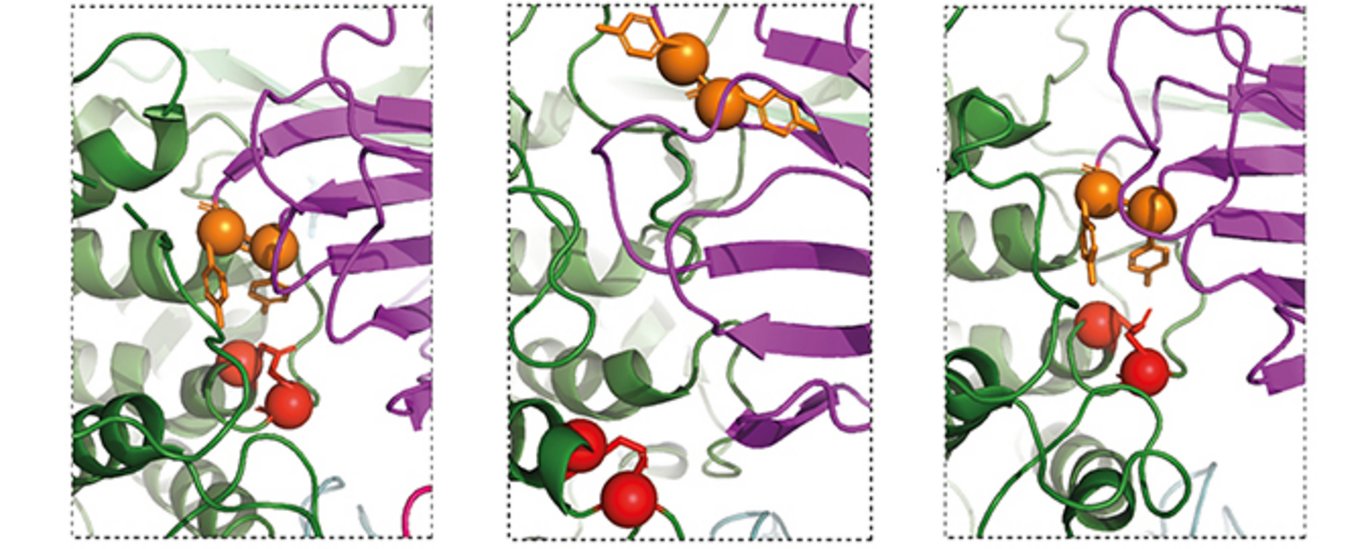From studies of frogs and 'mini suitcases' to the development of cancer medicine
Researchers have received support from the Danish Cancer Society’s programme Knæk Cancer for a research project that will lead to better immunotherapy with fewer side effects. The project is based on engineering work among the body's smallest building blocks.

This article is based on a news article from the Danish Cancer Society.
Imagine that you pack cancer medicine in a tiny suitcase and send it into the body via the blood. When the suitcase arrives at the cancer tumour, there are keys that fit in the lock. The suitcase is opened and the cancer medicine is released in exactly the right spot.
This is more or less the principle of the research project for which Professor Jan Johannes Enghild and postdoc Seandean Lykke Harwood, the Department of Molecular Biology and Genetics at Aarhus University in Denmark, have received a grant from the Danish Cancer Society’s Knæk Cancer (fight cancer) fundraising programme 2022.
They are experts in some of the body's smallest building blocks, the proteins, and the aim of their research project is to develop a new technology for better treatment with immunotherapy.
In recent years, immunotherapy has created a revolution in cancer treatment. The problem is that there can also be many side effects when the immune system turns against the healthy tissue.
The trick is therefore to hit the cancer cells without hitting the healthy tissue, explain Jan Johannes Enghild and Seandean Lykke Harwood.
- It is not difficult to kill cancer cells. The hard part is killing only cancer cells. Our aim is to create a technology that can reduce the side effects of immunotherapy. We do this by preventing the medicine from affecting the healthy tissue, says Seandean Lykke Harwood.
Antibody can be hidden in the suitcase
And then we are back at the tiny suitcase from the beginning of the article. Seandean Lykke Harwood has developed such a 'suitcase' on the basis of his studies of the protein A2M, which is found in large quantities in our blood.
He has developed a variant of the protein A2M that – like a suitcase – can hide an antibody. The theory is that it can transport the antibody, i.e. the cancer medicine, past the healthy tissue and towards the cancer cells.
Proteases
To understand what happens next, the researchers present another of the body's smallest components, proteases. Proteases are enzymes that cleave other proteins. This can lead to a complete breakdown of proteins as in the digestive system, or a targetted and limited cleavage that regulates the function of the proteins. If we refer to the comparison with the suitcase above, the proteases are the 'keys' that can unlock the suitcase to release the drug.
- The antibody is hidden in A2M, so the body cannot see the antibody until it is opened by the protease, explains Seandean Lykke Harwood.
The clever thing is that there are many proteases around the cancer tumour.
- Cancer cells produce proteases in an uncontrolled manner. They do this to grow and penetrate the surrounding tissue. There is therefore a special environment around cancer cells, which we try to exploit to open the suitcase and release the cancer medicine in the right spot, he explains.
- Our technology will change the antibodies so that they are first active in the cancer tumour itself, which will spare the healthy cells.
The American Frog
Professor Jan Johannes Enghild previously studied an A2M-like protein from an American frog when he worked for a number of years in the USA. The frog has a special variant of A2M which contains a hormone that is only activated when the A2M variant is cleaved by proteases.
- It is the same mechanism that we are trying to recreate in the development of cancer medicine. It is 'protein engineering' with inspiration from nature, says Jan Johannes Enghild.
The antibodies that must be put in the 'suitcase' are drugs that have already been developed and are on the way to being approved for the treatment of blood cancer, but which have been shown to have serious side effects in other forms of cancer.
- We are building on cancer treatments that others have developed, but we believe that with our technology in the future we can make them applicable to several types of cancer, says Seandean Lykke Harwood.
Jan Johannes Enghild and Seandean Lykke Harwood will start the research project in 2023, for which they have received DKK 2,920,000 from Knæk Cancer 2022 for the project 'Fewer side effects in immunotherapy'. First, they must develop their technology further so that it fits with the immunotherapy they want to test, and then the treatment must be tested through preclinical trials in mice.
For further information, please contact
Professor Jan Johannes Enghild - jje@mbg.au.dk
Postdoc Seandean Lykke Harwood - sdlh@mbg.au.dk
Department of Molecular Biology and Genetics
Aarhus University, Denmark
